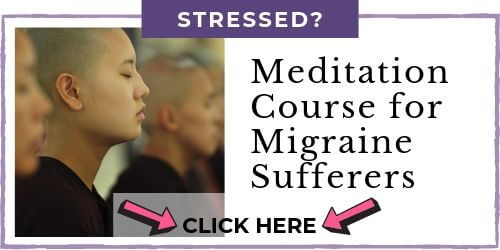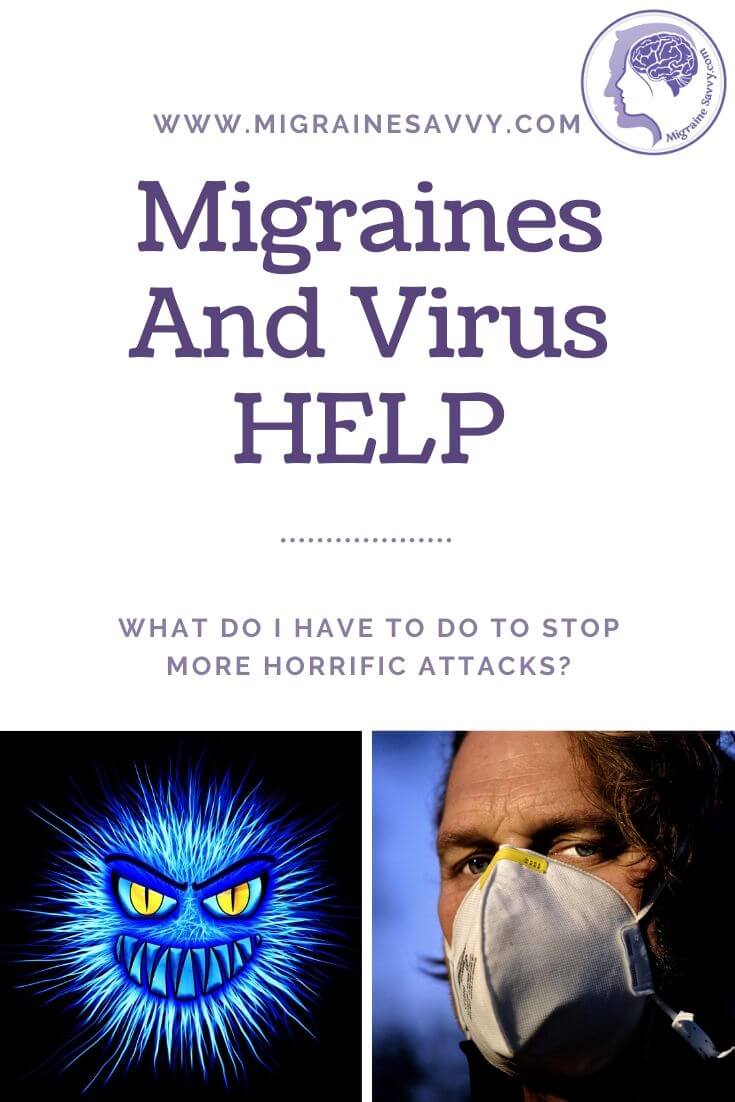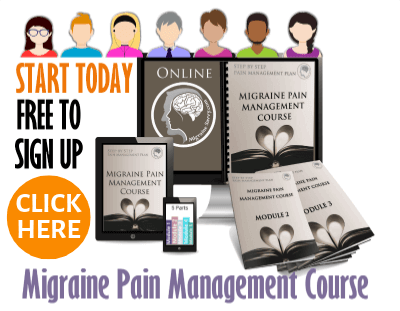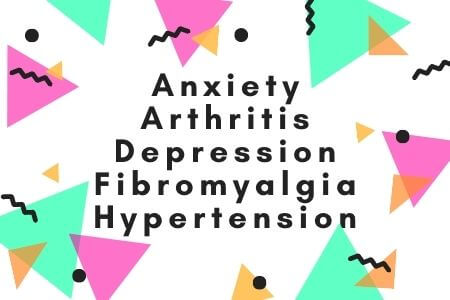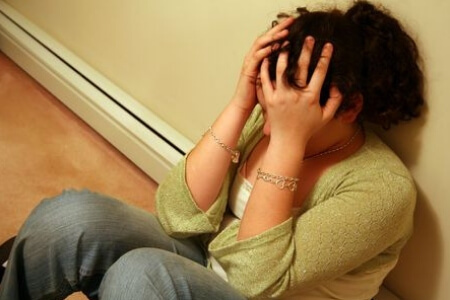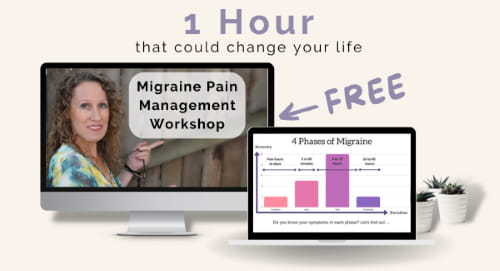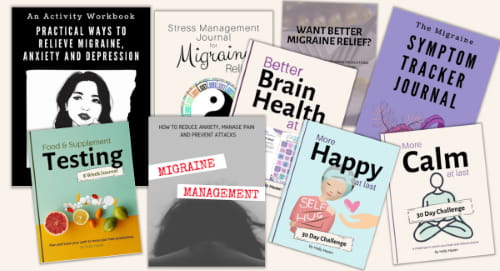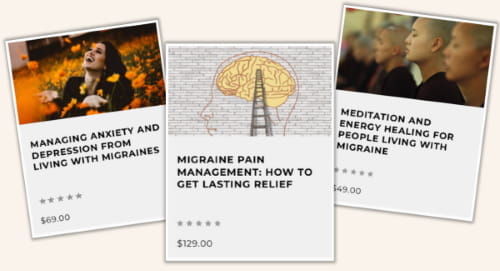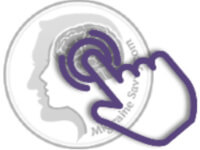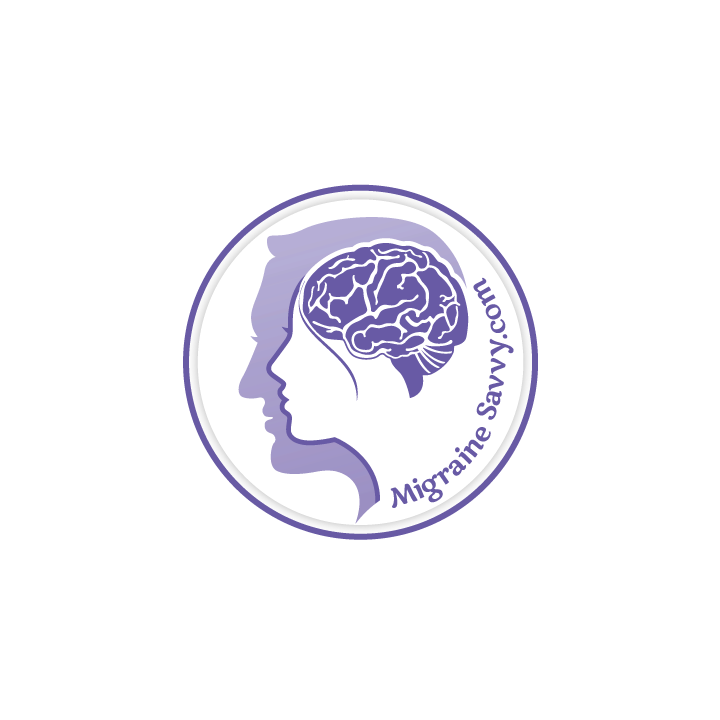- Home
- Associated Conditions
- Migraine and Virus
Magnesium Deficient = More Migraine Attacks
Science confirms this hidden trigger.
Get all 7 forms your body actually absorbs in one bottle.
🎁Save 10% with my code!
Magnesium Deficient = More Migraine Attacks
Science confirms this hidden trigger. Get all 7 forms your body actually absorbs in one bottle +
🎁Save 10% with my code!
Migraine And Virus: How To Manage Coronavirus And Anxiety
What you need to know | Are you more at risk? | Tips To Help Manage Migraine And Virus | Facts | How to avoid getting sick | What to do if you do get sick | Diet changes | Herbs | Top 4 vitamins | How to stay clean...er | Practical shopping tips | Self-care | Reduce anxiety in 3 steps | Silver lining | Important links
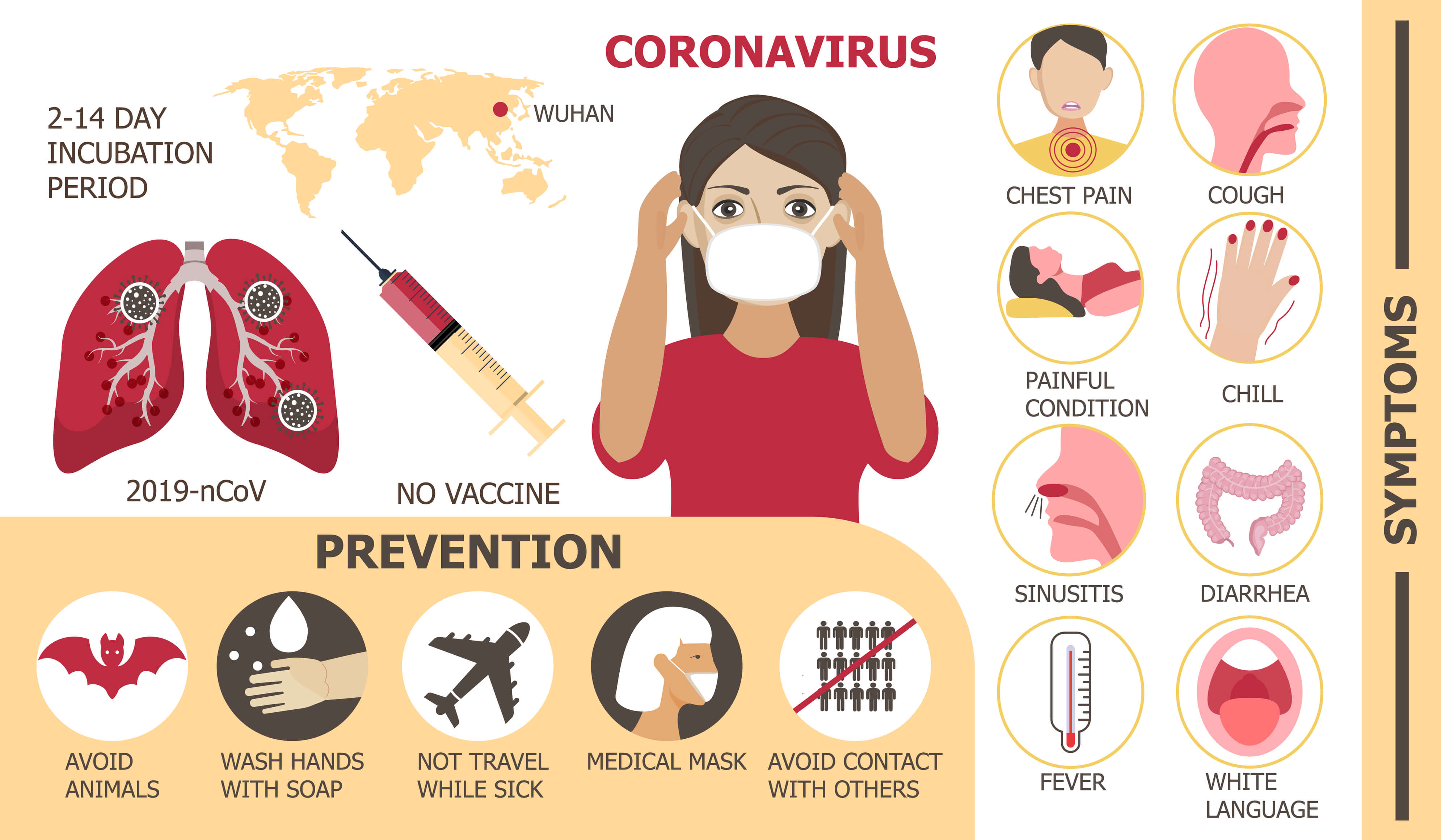 Migraine And Virus COVID-19: Tips To Help You Manage The Coronavirus Pandemic
Migraine And Virus COVID-19: Tips To Help You Manage The Coronavirus Pandemic
Feeling a little more anxious lately? You have cause to. So much has been happening the past few years.
Try to remain as calm as you can. Getting good, accurate information to help you understand this virus will really help keep you safe, safer, and lower your anxiety levels.
After hundreds of hours of reading and research, I bring you some of what the headache specialists and other experts in this field are suggesting we do.
It's not just about washing your hands for 20 seconds, or keeping a safe distance (1.5 meters or 3 feet) from others... but doing these 2 things will help 1 - kill the virus and 2 - stop it from spreading. We already know this, but...
It's also about slowing down and starting some radical self care routines that will ensure your safety and the safety of others. It's about learning to do things differently from now on...
Things are changing every day, so let's get to what the experts are saying we do, if we have migraines to contend with too....
If you have chronic migraine, you already know what it’s like to be anxious, disabled and isolated.
In this article, I want to offer you sound, well-research solutions that will help you:
- Reduce anxiety a little by knowing what you can do to help protect yourself
- Boost your immune system
- Offer you some safe, less toxic, yet effective cleaning and disinfection options
If you are still feeling really fearful, I hope reading this migraine and virus article will help you feel more informed and prepared.
Don't panic but rather be well informed and be proactive.
What you need to know about migraine and virus [COVID-19]
The American Migraine Foundation (AMF) published 7 considerations for people living with migraine.
They spoke with American Headache Society member Dr. Mia Minen, a headache specialist and epidemiologist, who shared seven COVID-19 considerations for people living with migraine, as well as some general practices I think are worth noting around having both migraine and virus.
Are you more at risk as a migraineur?
Dr. Minen doesn't expect people living with migraine who are generally in good overall health to be at increased risk.
BUT you still need to adhere to the best practices to limit infection.
AND you'll have to be better prepared to limit the potential to trigger more attacks (if possible).
Anxiety alone can trigger an attack for many of us.
Disclaimer: This information is presented for education in the spirit of goodwill. Note that this article is for informational purposes only and to reinforce the seriousness of migraine and virus COVID-19. Always seek the advice of your physician or other qualified healthcare provider with any questions you may have regarding a medical condition or treatment and before undertaking a new health care regimen, and never disregard professional medical advice or delay in seeking it because of something you have read in this article or in materials or websites referred to herein.
Tips To Help Manage Migraine And Virus
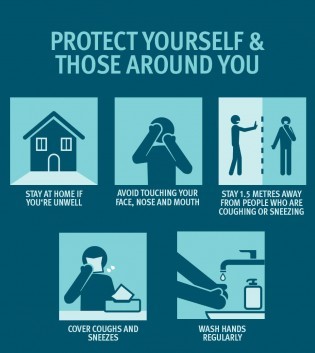 Tips To Help Manage Migraine And Virus @migrainesavvy
Tips To Help Manage Migraine And Virus @migrainesavvyRefill supply of your medications in case of quarantine
Make sure to have an adequate supply of your prescribed medications you need to abort and prevent attacks.
If possible, organize a 90-day supply of your medication.
Have both acute and any rescue medications or preventative medications on hand.
You may need to call your doctor - not go in - to help you organize this. Most doctors are offering telehealth now or telemedicine 'virtual' appointments which will help limit exposure.
As this is still an unprecedented event, it's worth a phone call to see what they offer.
Be sure to hydrate... properly and adequately
This means not only drinking enough water but getting the quenching structured water stored within fruits and vegetables.
If you already know dehydration is a migraine trigger for you... having both migraine and virus can cause vomiting making it worse. Consider getting some electrolyte drinks. Coconut water and chicken broth are great. Make a broth that you can freeze ahead of time.
I've written more about proper hydration here - Migraine Nutrition: How To Improve Your Diet and The Best Remedy for Dehydration Headache.
Maintain your routines and diet to help reduce triggers
In time of crisis, your schedules may be changing, causing stress and additional triggers.
Maintaining your routine for diet, hydration and sleep is SO important.
Is dehydration a trigger for you? Have a few sips of water every hour.
Is low blood sugar a trigger? You need to be sensible and eat regularly so as not to trigger an attack... even if you don't feel like eating... sip on soup and a piece of toast or salty crackers.
Also, be aware of the particular foods or additives, such as MSG, that may be triggers for you.
In this time of chaos, you may be stocking up on food... so make sure that you’re going to be able to have foods that don’t have ingredients that could trigger an attack. Sometimes in desperation we panic and allow triggers to slip in.
Stay calm and limit stress
You probably already know if stress and anxiety triggers an attack.
If they do, it’s important to be a little more vigilant right now.
We know that the migraine brain is a sensitive brain, and it's vulnerable to changes in sleep and stress. Routine and keeping things as stable as possible with serve you well now.
This might mean practicing radical self-care or reaching out for support to help manage your stress, anxiety, migraine and virus.
There are more stress reduction tips below, so keep reading.
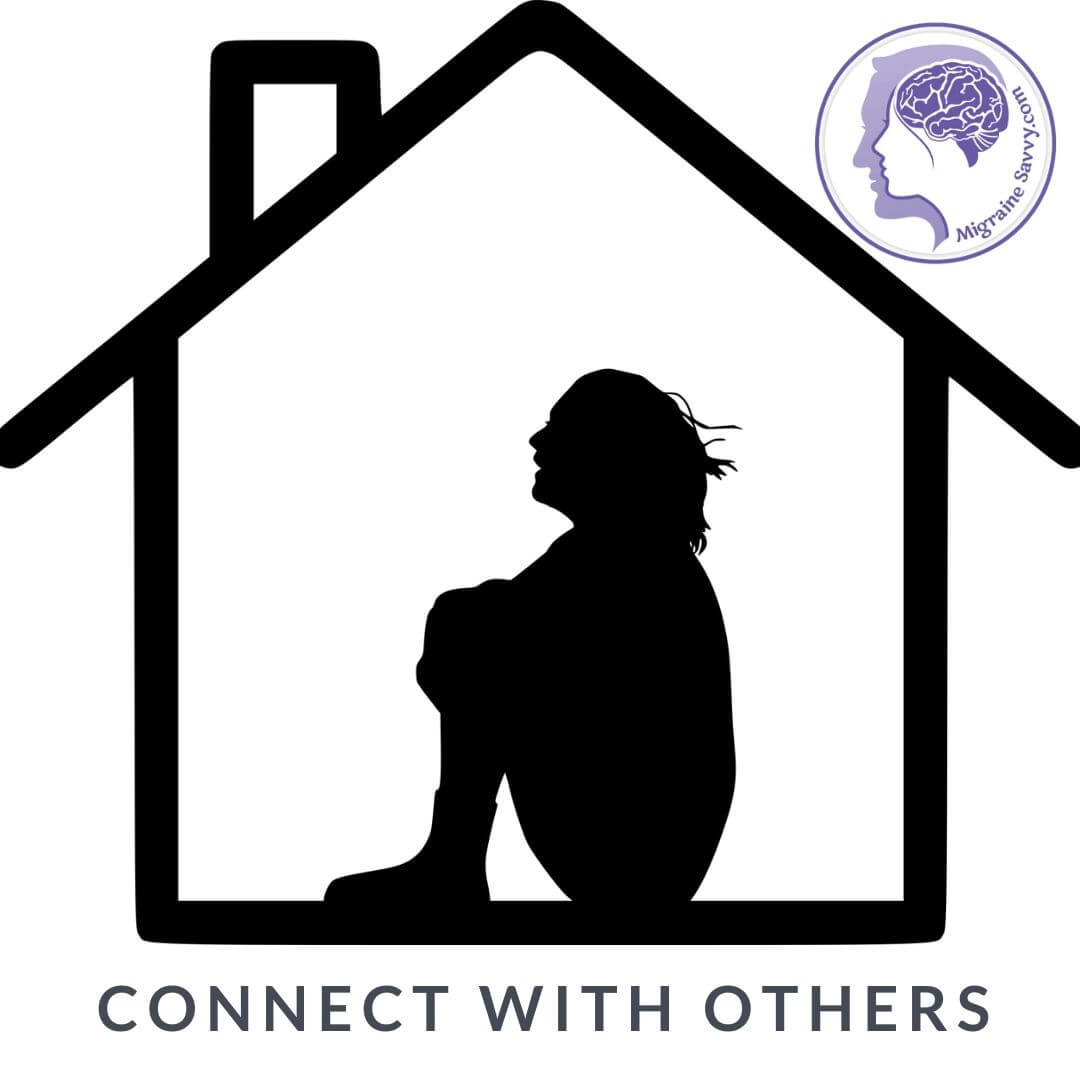 Migraine and virus. Virtual connection is the only option right now.
Migraine and virus. Virtual connection is the only option right now.Connect with others... but not in person
If you are feeling more isolated than normal, connect with others in Facebook, Facetime or Skype. Line up a zoom meeting for lunch... or dinner.
Connect with others via the internet. It's the only option right now.
Prepare ahead like it's any other flu or virus
I know... it's NOT... but hear me out.
Get things you rely on to relieve symptoms. Things you know you already you can use and not be triggered by. I use Betadine throat gargle, Bioglan throat clear sugar free herbal lozenges with 2.6 mgs of zinc in them. We'll get to vitamins in a bit... but get your favorite soft tissues, etc. Migraines and virus require comfort tools.
I make my own LemSip - here's the recipe: 1 tablespoon of lime juice (frozen ice cube), 1/8 teaspoon pure salt, 1/2 - 1 teaspoon honey, and one Aspro Clear dissolving aspirin (300 mgs) all in a freshly boiled cup of water.
And I have chicken broth in the freezer at all times to sip on during an attack.
See if you can get things delivered to you
Call the pharmacy to see if they will deliver your prescriptions and required items.
Buy food online and get it delivered - if they are still doing that. Instead of exposing yourself to potential viruses at the store, try to find a grocery service that might deliver. Call some meal delivery companies... see what they are offering in this time of chaos.
There are things being set up and put in place for this, so make some phone calls and Google in your local area.
Scroll down to - What to do if you get something in the post for more details.
Migraine and virus... some facts about the Coronavirus
As surreal as it all seems right now, please proceed with caution and awareness.
This SARS-CoV-2 (novel coronavirus; COVID-19) is now a worldwide pandemic. The virus is spread from person-to-person and it is believed that you must be within 6 feet of someone who has it to contract the virus.
You get it by touching something that someone else has just touched who has it, then touching your eyes or face. Here is a great New York Times article on how it spreads.
"The Coronavirus is highly contagious and it puts our elderly at the highest risk, specifically, older male smokers. The main national concern appears to be not just that Coronavirus has a higher death rate than the usual flu, but because many people are getting sick at the same time (high virulence), and causing a strain on our medical systems, resources, hospitals and providers and more importantly, access to care. Your best defense is prevention. Take universal precautions." [2]
- According to the CDC, the virus incubation period is 5.5 days. [3]
- The virus is spread from person-to-person and it is believed that you must be within 6 feet of someone who has it to contract the virus. [2]
- The biggest rate of transmission for someone is coming in contact with the virus with their hands, and then touching their eyes, nose and mouth, and getting it into their respiratory tract. [6]
- COVID19 is 20-30X more fatal than Influenza (2-3% vs ~ 0.1%). Calculating exact mortality rates is hard to do when a new disease first hits, and this one is especially hard since many will go undiagnosed. But 2-3% is a good first-estimate. [5]
Dr. Ken Evoy says "Assume the person next to you might be contagious with COVID19, even if they seem well. Do so even if there has not been a report of COVID where you live - it won’t announce itself when it first reaches your area ("community-acquired" means that the virus has been sneakily spreading in a place for a while, finally causing the first reported/confirmed case).
And it WILL reach you... Regardless of where you live in the world, this will reach you at an exponential rate of spread." [5]
Assume everyone has it and act accordingly.
~ Dr. Ken Evoy, SBI
How long does it last in the environment?
It can last in the air for up to 3 hours… more moisture will take it to the ground. [6]
It does last on surfaces much longer than the typical flu:
- Metal, glass, plastic, and hard surfaces – 72 hours
- Cardboard and paper – 24 hours ***MAIL***
Be careful what’s coming into your house! Scroll down or click here for - What to do if you get something in the post.
Any package from amazon – could have traces of virus in it.
AND then on the inside – supplements – food – those surfaces could have the virus on it. [6]
The virus can be IN IT and ON IT!
The scientists found that SARS-CoV-2, the virus that causes COVID-19, was detectable in the air for up to three hours, up to four hours on copper, up to 24 hours on cardboard, and up to 2 to 3 days on plastic and stainless steel.
~ Quentin Fottrell [8]
Ways to avoid getting sick and boost your immunity at the same time...
Dr. Anna says that the best defence is "to boost your immune system so you are less likely to get sick is simply by getting your body in the best possible condition." [2]
Here are a few things she shares so you can easily reduce your risk of illness and get started in a healthy direction:
- Eat healthy low glycemic foods.
- Get a good night’s sleep.
- Take a walk outside every day - exercise regularly.
- Optimize your Vitamin D level - check with your doctor for the right dose for you (5,000 - 10,000 IUs/daily).
- Boost Selenium with two Brazil nuts daily (or a supplement) to get 200 mcg a day.
- Eat Zinc rich foods like oysters, meats, shellfish and nuts.
- Vitamin C is essential. 2,000 mgs a day in divided doses is best, or follow directions on the label.
- Use a colloidal silver nasal spray.
- Use Biocidin throat spray or similar throat spray (see my recipe below).
- Enjoy a sauna, especially infrared sauna.
- Alkalinize your body and get your urine pH to 7.
- Avoid exposure.
- Wash your hands for at least 20 seconds. And use a nail brush.
She prescribes laughing... A LOT and to make sure you purposely guide your thoughts in a positive direction. DITTO!
Coronavirus vaccine? Well, it appears that the virus has already mutated twice, so an effective vaccine in the near future is unlikely.
~ Dr. Anna Cabeca
Here's a great recipe for antiseptic nasal spray you can make at home...
Dr. H’s antiseptic nasal spray: in nasal spray bottle add diluted H2O2* and Biocidin to saline. Here's an example:
- 1 ml H2O2,
- 5 ml saline,
- 2 drops Biocidin (2 - 5 drops is good, but use 2 if you are sensitive).
Use it anytime you want. Here's the link for - Biocidin drops on Amazon.
*H2O2 is hydrogen peroxide and 3% food grade is recommended.
 Migraine and virus help @migrainesavvy
Migraine and virus help @migrainesavvyWhat should you do if / when you do get sick
Dr. Anna Cabeca says:
"Of course isolate yourself and see your doctor or go to the ER if your symptoms are concerning and or have any shortness of breath.
Do all of the prevention strategies mentioned above. Hydration is critically important as well. Urine should be clear, not gold. Eat things like ice chips, popsicles (low sugar), bone broth, and chicken soup. Use onions, peppers, ginger and garlic in your soups for best effectiveness. The peppers and ginger are a natural way to clear up congestion. Avoid grains and dairy products because they do cause mucus to build up and that can make you more miserable.
Eating cheese or any dairy if you have the flu or are sick can cause the creation of additional mucous, which can heighten your discomfort. If you (or a child/loved one) have frequent ear infections, stop eating cheese, dairy and grains. These foods can cause additional mucus to build up and cause those painful ear infections. I used to have frequent ear infections and as a child had tubes surgically put in my ears five times. Once I stopped dairy it never happened again.
Use colloidal silver throat spray to help with sore throat and mucous. There are other good products at the natural health store too." [2]
She has a delicious soup recipe - here's the link - Reset Soup Recipe
Use Ibuprofen to help reduce fever not aspirin
If you want to reduce your fever that is. It is our body's natural defense system. So some fever is safe. Talk to your doctor about this. [6]
Dr. Anna Cabeca says "Avoid taking Tylenol on an empty stomach or while dehydrated. It can affect liver function. Avoid aspirin as well because of the risk of Reye Syndrome. Ibuprofen or Aleve is fine. A lukewarm bath can bring fever down in an emergency situation. Ice packs can also help to bring fever down.
Fevers can be useful up to a certain level. If your child’s fever is over 103 for any length of time, take them to the emergency room. A warm Epsom salts bath can help alleviate many of your symptoms and I’ve used this often." [2]
Reduce Migraine And Virus Risk. Be Informed. Be Prepared. Be Proactive.
Make diet changes that can help strengthen your immune system
If you haven't done these things already to help reduce your migraine frequency:
- Reduce sugar intake
- Reduce alcohol consumption
- Reduce inflammation
"Sugar, in all forms; added as well as naturally occurring, is a big immune system suppressant. The biggest culprits that jack up sugar intake in your diet are: Juices (for example, Odwalla contains 40 grams of sugar = 9 teaspoons), smoothies, energy bars, ketchup, protein shakes, coffee lattes, chai.
For easy reference: 4 grams of sugar is 1 teaspoon (to be precise, it’s actually 3.8 grams = 1 teaspoon but it’s easier to remember it as 4 grams). For example, according to their website, an 16-oz Starbucks Mocha Frappucino contains 52 grams of sugar which is 12 teaspoons of sugar.
My belief is that part of the reason why so many people have a weak immune system is due to the amount we consume (unknowingly), or are addicted to." [3]
And drinking alcohol... whilst it's tempting during this stressful time, ethanol, like sugar, is a big immunosuppressant. So it would be best to either lay off completely or limit your alcohol intake per day. I doubt you'll want to drink during a migraine and virus.
And reduce inflammation...
"When you reduce inflammation, your immune system gets a break too and is better equipped to fight any pathogens, viruses included. Many people immediately think of taking heaps of anti-inflammatory supplements such as turmeric or boswellia. However, modifying your diet will create a more impactful shift.
Getting off gluten, dairy and any other foods that you know don’t agree with you, as well as sugar and alcohol, will be the most effective way of lowering your inflammation. Many women find that removing eggs, corn or soy from their diets have the biggest impact." [3]
To stay as healthy as possible with a migraine and virus, eat an anti-inflammatory diet. This means eating a rainbow of whole fruits and vegetables (organic is best), clean, pastured proteins and wild fish, probiotic foods like natural sauerkraut, plain yogurt, kefir, kombucha, healthy fats like extra virgin olive oil, cultured organic butter, pasteurized eggs, avocados and nuts.
Ginger, garlic, onions, greens, aromatic herbs, turmeric, cinnamon, cayenne, and miso (soup or paste) are some of the best anti-inflammatory foods. Eat some of them in generous amounts every day.
A large part of immunity begins in your gut, and this is a time to stabilize any signs of digestive distress or leaky gut. If a continuous state of low-grade inflammation and the stress signals associated with it, arise in the gut, that’s less immune power to ward off infection. Take it easy on (or even eliminate) gluten, sugar, artificial sweeteners, dairy proteins (if you are sensitive), refined oils, processed foods, and overuse of NSAIDs and antibiotics. These can interfere with your healthy gut microbiome. A little red wine would be in order, but not excessive amounts. Don’t kid yourself… alcohol is sugar.
~ Dr. Joan Borysenko
This is a great lifestyle choice even if you don't have migraine and virus.
Herbs to help boost your immune system
Herbs could play a huge role, but there is no single herb currently that can fight COVID-19.
If you want to consider herbs, here is a great article - COVID-19: Herbs, Foods, Vitamins and Minerals To Boost Your Immune System.
The article also covers using raw garlic (just crush a clove of garlic and serve it on top of a piece of gluten-free toast) and medicinal mushrooms (Shiitake, Reishi, Turkey Tails) that are "small powerhouses of nutrition are immunomodulators. This is due in part to their high levels of beta-glucans, which help activate macrophage and natural killer cells that are pivotal to your immune defense." [3]
That’s good reason to add some of these mushrooms to an omelet, green smoothies or dishes like salads, soups, and stews. [3]
Migraine and virus... which vitamins are best
If you have migraine and virus, and want a natural approach, this is a great read...
Dr. Jack Tips, who is a brilliant clinician and understands pathogens better than anyone I know, responded to the Coronavirus about a week ago by writing this detailed scientific paper sharing remedies and nutrients that can support your individual system to cope with and recover from exposure to COVID-19 as well as other challenging viruses.
~ Christa Orecchio
Here are my top 4 vitamins to consider. Please check with your doctor, nutritionist or naturopath before experimenting with any vitamins just to be safe.
You may require a blood test first to check your levels.
- Vitamin D3 - in the range of 5,000 to 8,000 IU per day. Here's the link for the one I like.
We all know vitamin D (the sunshine vitamin) is essential to our health, yet most people are highly deficient in vitamin D3. It can modulate the innate and adaptive immune responses. Deficiency in vitamin D is associated with increased autoimmunity and an increased susceptibility to infection. [3]
Dr. Tips says to always take vitamin D3 with K2, and for flu to include some vitamin A.
- Zinc - maximum 50 mgs a day. Here's the link for the one I use.
Zinc is an essential trace element that’s found and used by every cell in your whole body.
It's only needed in tiny amounts, but if you don’t get enough zinc, the consequences can be grim. "This is because your body relies on zinc for growth, maintenance, and numerous biological functions – including hormone creation and balance.
More than that, zinc is a major boon to your immune system, especially when partnered with vitamin D3 and vitamin C which we’ll cover next. There are many signs of zinc deficiency, but one common tell-tale sign is white spots on your nails. You shouldn’t exceed 50 mg a day." [3]
- Vitamin C - 2,000 mgs per day. I prefer liposomal - here's the link.
Vitamin C is an essential nutrient and potent antioxidant, making it ideal for boosting your immune system.
Vitamin C contributes to immunity through cellular functions of both the innate and adaptive immune system. It supports epithelial barrier function against pathogens and promotes the oxidant scavenging activity of the skin, thereby potentially protecting against environmental oxidative stress. [3]
"How do you know your proper vitamin C dosage? You should take it at the level that your body best tolerates, so go up until you experience loose stools. Research shows that for viral protection, 2000 mg per day is most effective – try that dose but if you get loose stool, back off until your stool is well formed again." [3]
What should you use to keep yourself cleaner and healthier?
With migraine and virus COVID-19 you need to use the right things... here's what will work, and what will not.
Soap... pure soap (any soap with bubbles)
Just using soap can be less problematic than antibacterial hand sanitizer...this is a huge topic all on its own. For now, just consider this simple option. And the time length of washing your hands for 20 seconds is also essential. That's a long time.
Make your own hand sanitizer
According to the CDC’s recommendations be sure you use rubbing alcohol with over 60% ethanol, or else it won’t work. Most of the over the counter hand sanitizers do not contain 60% isopropyl alcohol so be aware of this... they are not effective enough for this virus. [5]
- Here’s a DIY hand sanitizer recipe I love: 9 parts alcohol to 1 part Aloe Vera Gel. So 90 mls alcohol and 10 mls Aloe Vera Gel (approx 2 tsp)
Good ol' white vinegar WILL NOT kill this virus (nor will Vodka or spirits)
Vinegar will not kill a nasty virus like COVID-19. But it is a good cleaning product for every day cleaning. It is a good "antimicrobial and won’t compromise your microbiome and immune system the way commercial cleaners would. You can use ethanol if it makes you feel safer." [3]
Here is Magdalena's recipe:
You can make your own DIY all-purpose cleaner by combining water with white vinegar or ethanol (contains 95.6% alcohol) in a 2:1 ratio. "Keep it in a glass bottle. You can add some essential oils, see below." [3]
She says that essential oils are helpful to add, but they won’t work alone. You can add them to your antimicrobial soap, hand sanitizer, all-purpose cleaner, as long as they are not a migraine trigger for you.
"Essential oils with the highest antimicrobial profile are: Oregano, Clove (I like YL’s Thieves), Lemon, Sage, Thyme. Contrary to popular belief (or marketing of it), tea tree oil is not the most effective antimicrobial oil." [3]
What will (should) kill this virus
With migraine and virus you also need to make sure no smells trigger an attack for you.
Here are some MUCH better options:
#1. "70% isopropyl alcohol will kill everything including Ebola." [6]
#2. Diluted bleach is another good option. [6]
Diluted bleach: add ¼ cup into 3 liters of water. Spray or wipe item then let it dry for 30 minutes.
#3. Hydrogen peroxide (3 or 6%), if sprayed and left to dry, on a bench top is another good way to clean flat surfaces.
Research found that human coronaviruses "can be efficiently inactivated by surface disinfection procedures with 62-71% ethanol, 0.5% hydrogen peroxide or 0.1% sodium hypochlorite" or bleach within one minute.
~ Jacqueline Howard, CNN [11]
"For SARS coronavirus, the range of persistence on surfaces was less than five minutes to nine days." But more research is needed. [11]
Practical shopping tips
With migraine and virus COVID-19, here are some shopping tips you need to know:
- Go infrequently, shop efficiently. Plan ahead.
- Try "contactless" shopping. Order ahead, pay ahead, then swoop in quickly to pick up your purchases. Many of your local markets are probably offering this option by now, and I think it's safer for the market employees and for us. "Now is not the time to meander through the supermarket." [9]
- When you get home, shoes off outside, clothes off and into laundry (hot wash), wash hands, disinfect, and jump in the shower.
- If you carry a reusable cotton bag, throw it into the wash as soon as you get home, and then dry it thoroughly in the dryer. [9]
What to do if you get something in the post
Here’s what you could do when you get an order via the post. [6]
Before you bring it in the house:
- Gloves ON!
- Open the front door to get the parcel, but stay outside with it, or if you have a 'safe' room use that.
- Then spray the item with 70% isopropyl alcohol (OR diluted bleach OR H2O2) and wipe it down. Allow it to sit for 10 seconds to 30 minutes, depending on what you use, and then dry it off. [6] OR just spray it and let it dry naturally. Outside.
- Open it outside… any cardboard boxes or envelopes go straight to your recycling.
- Let the inside contents sit outside for at least 24 hours, wipe them down and then bring them inside. (See - How long does it last in the environment?)
DO NOT bring things/packages straight into your kitchen and just put all the things away. [6]
Also, remember to wear gloves with all this washing and wiping. If your hands get cracked and dry they will be more susceptible.
Dispose of packaging quickly
Taking this route involves using gloves to open the package outside, putting the cardboard packaging in an outdoor recycling bin, and then wiping down the contents with disinfectant and bringing them inside.
Once you’ve taken your items out of the box or bag they were delivered in, get rid of the packaging - that’s what was out in the world the longest. After that, sanitize any of the surfaces in your home that the packaging touched.
~ Maija Kappler, Huffington Post [10]
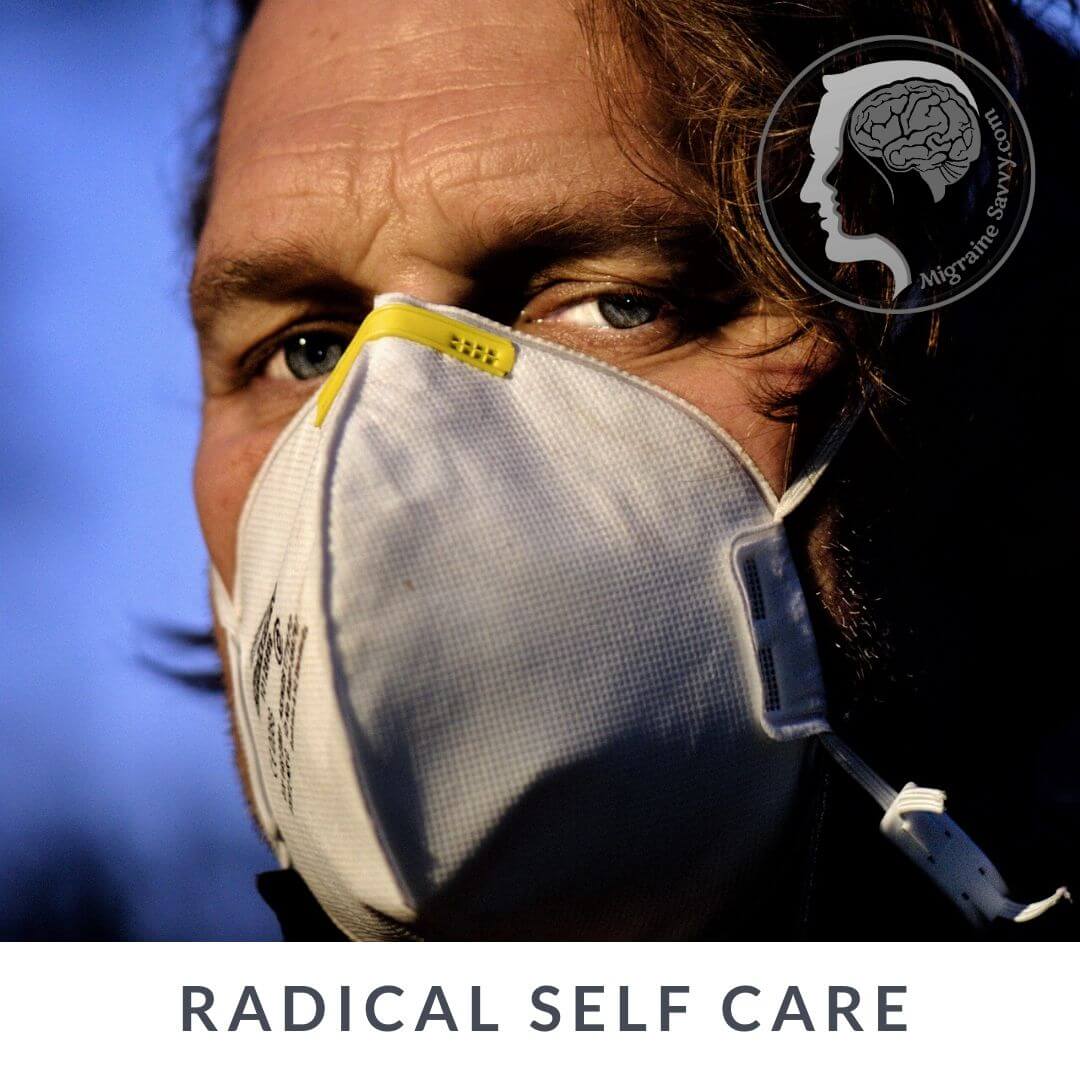 Having migraine and virus means learning radical self care.
Having migraine and virus means learning radical self care.Practice radical self-care
At the moment, there is no quick fix for migraine and virus COVID-19.
But solid sleep, healthy nutrition, hydration, exercise, and meditation can start to build your resistance over short-to-medium term. So don’t just stock up - stock up on the right food and meditate calm thoughts while walking home carrying the groceries - that might be an efficient way to start. [5]
Another tip from Kiran Krishnan, a brilliant microbiologist, is to raise your core body temperature:
- Sauna 15-20 minutes.
- Take a hot shower and sit in the steam.
- Exercise to get your body temperature up and then jump in a hot shower.
This is not a treatment or prevention for COVID-19… just a way to build yourself up, improving your health to stay more resilient. [6]
Tame anxiety and uncertainty with this 3 step process
Uncertainty makes us nervous.
~ Ruth M. Buczynski, PhD (nicabm)
If you are feeling out of control, you are not alone. With things the way they are right now, you might be experiencing a sense of paralysis around having no sense of control.
You want to have a sense of "it will all be OK." I, we, my child, will beat this virus. You may even think "If I do all the right things, I am guaranteed NOT to get this virus."
This in itself, can raise your anxiety levels.
Here are 3 things that Kelly McGonigal, PhD suggests to help you feel more in control [4]:
1. Affirm your identity that’s challenged. "I am a caring parent." I am a caring wife, mother, human. You might find yourself thinking “If I were a good parent, this wouldn’t have happened.” Often, if you are so caring, you will feel this more intensely.
2. Take time to acknowledge what is difficult about this situation. Feel the disappointment, often we try to avoid what we’re feeling. What is the disappointment, anger, shame, and or fear? Give yourself time to BE WITH the overwhelming emotions.
Keeping a journal can help you articulate your feelings. Give yourself permission to BE WITH things and acknowledge what the pain is telling you. Have compassion for yourself.
3. Shift your focus from control to choice. If you feel out of control, think about what you can control, what do you have control over? In chaotic times like these, Kelly suggests that these questions will help us to move forward easier:
- What can you choose in this situation?
- What do you want to bring to this situation?
- Who do you want to be in this situation?
Choose the positive like courage and calm, for example. So, "what I want to choose for this situation is reaching out for support… finding resources."
This is an uncertain time where we can’t depend on certainty, but we can make choices that are consistent with our goals, our values and who we want to become. [4]
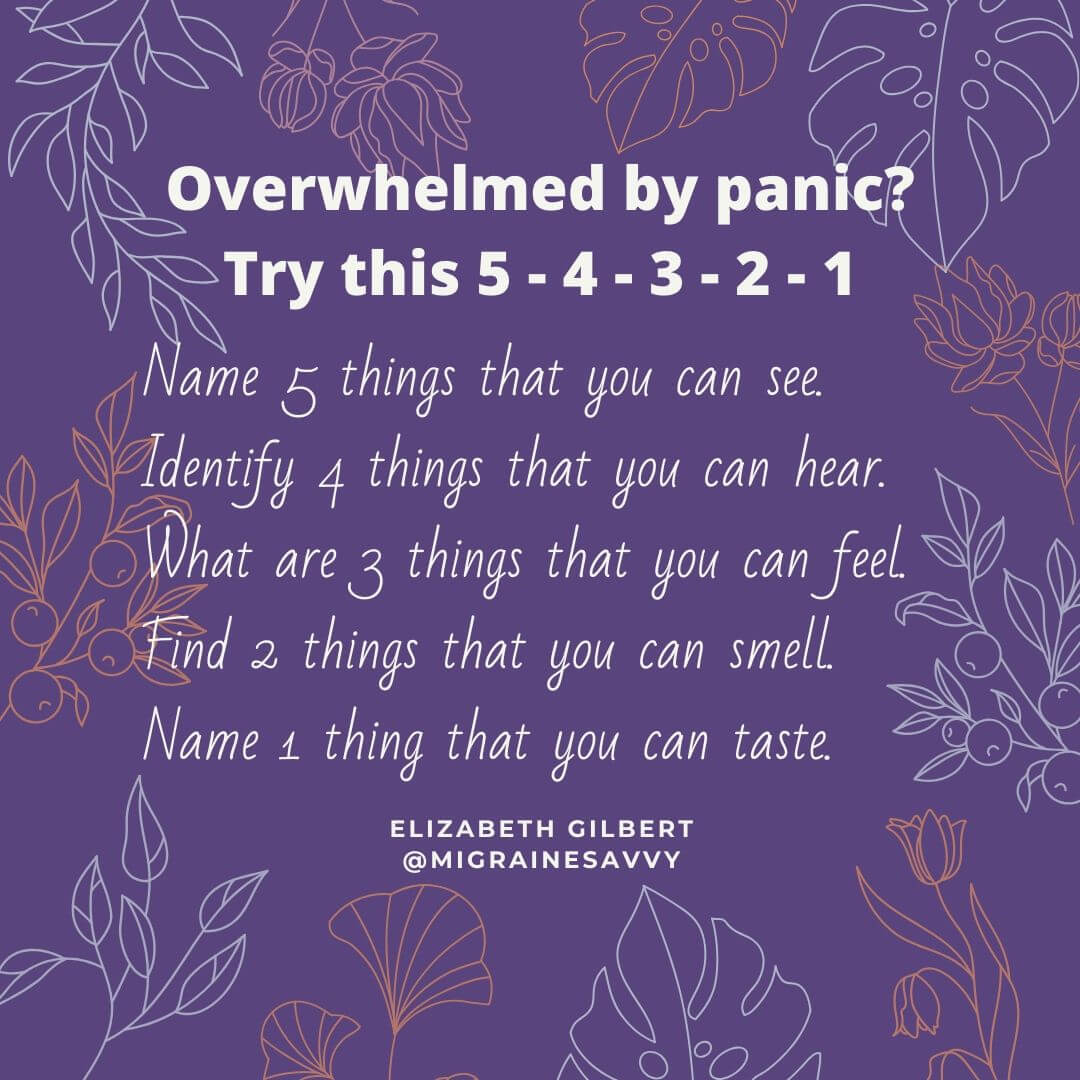 Overwhelmed by migraine and virus... pause, take some deep breaths and count down 5 to 1.
Overwhelmed by migraine and virus... pause, take some deep breaths and count down 5 to 1.3 Tips for calming down... freaking out reduces your immunity
Once the pandemic is over you will have these techniques to help you feel better for the rest of your life.
#1. Slow your breathing
If you are scared or panicking you might hyperventilate and that drives the fight or flight response, the stress response.
When you calm down it shifts and switches to parasympathetic nervous system. Which is the rest and renewal where your body heals.
The next time you notice yourself freaking out just say, to yourself, “WOW I am freaking out… I am panicking.”
Do you know that if you just name an emotion, it tames it. It calms the amygdala. So much of the stress response takes place in the brain.
Slow, controlled breathing techniques have been used for centuries to induce calm because they are SUPER fast, effective and they work! "These forms of breathwork marry the prefrontal cortex to the midbrain... Clinically they can be used to quell excessive arousal, like panic attacks." [7] Dr. Joan Borysenko calls this technique "Gearshift Breathing" because it short circuits negative thoughts and quickly shifts us into a mindful space that opens us to calm and peacefulness."
Here are her instructions:
"Sit upright in a comfortable position, with a straight spine and chin parallel to the floor. Breathe in slowly through the nose, and exhale slowly through pursed lips as if you are breathing out through a straw. This slows the breathing way down to 4-6 breaths a minute. You’ll notice that after you release all the air, there is a delay before the next natural breath. Don’t hold your breath, just let the rhythm evolve naturally. Only 1-2 minutes of this breathing is enough to trigger the hormonal drip that calms your fear circuits as you become more present." [7]
If you are feeling anxious right now, you can also try exhaling longer than your inhale at least 3 times. So exhale for 10, and inhale for 5 or 6. Keep doing this, without pressing too hard, relaxed is the goal.
Doing some breath work will help ease added anxiety that may come with migraine and virus.
#2. If you find yourself worrying and ruminating
If this migraine and virus situation has you ruminating, go out in nature (adhering to social distancing).
It's very beneficial to step outside and commune with nature. This powerful connection is so calming, that it is rated the #1 stress reducer in cultures around the world. As a bonus, 15-10 minutes outside boosts your vitamin D as well.
If your mind starts catastrophizing... ponder this instead:
- How can I use this time to make my life better in some way?
- What have I wanted to learn or do and have put off?
Perhaps it's a good time to learn to meditate or learn a new language.
#3. Refocus your attention on something pleasurable and relaxing
We can change our brain and make new neural circuits.
The brain has an inherent negativity bias. That means it worries a lot, it ruminates a lot. And that means bad things stick to it and stay with you. Where as, good things you hardly notice can just flow right away.
For survival purposes, we’ve needed to stay alert to danger. But right now, dealing with migraine and virus and the overwhelming amount of information out there... doing this will make you more stressed out.
You can make poor decisions because stress cuts off our prefrontal cortex – so if you freak out, it goes offline and you just can’t make good decisions.
Dr. Joan Borysenko says that "it’s just as easy to spin a powerful, healing story, rather than a story that makes you sick… or at the least, a neutral story that is realistically hopeful about what the future may bring." She says "you can counteract the brain’s negativity bias – a survival strategy that causes us to be more affected by the bad than the good – by taking time to savor the little good things that happen every day: the song of a robin; the taste of a crisp apple; the smile of a stranger… Enjoying sensations of love, warmth and goodness in your body for 10-20 seconds actually results in the formation of new, more positive neural networks." [7]
So if you have migraine and virus... remember to pause (for 10-20 seconds) and savor whenever something good happens. This creates more positive neural circuits in your brain.
Catch these things during the day and then at night, instead of making TO DO lists, bring up that memory of the beautiful moment or moments you had and this will help calm you. Smile and send yourself love.
Migraine and virus last take away... silver lining?
“COVID-19 is something called an 'envelope' virus… this envelope virus has a fatty acid coating and that’s pretty weak… so that’s part of the silver lining of this. Is that we’re dealing with a virus that is pretty weak. So it’s not very hard to kill it. Washing your hands will do that. The biggest rate of transmission still, is someone coming in contact with the virus with their hands, and then touching their eyes, nose and mouth, and getting into their respiratory tract.”
~ Kiran Krishnan
I hope this article helps you manage migraine and virus a little better.
Being prepared ahead of time will help reduce anxiety that comes with migraine and virus.
Remember the long exhale and to pause. You will get through this... you are strong and healthy... you just get migraines.
I did not intend this to be such a long or comprehensive "what to do" migraine and virus article. If I have curbed your fears around migraine and virus... and woken you, that’s my goal. The End!
Please share your comments on migraine and virus below.
Migraine and Virus (COVID-19) Important Links from the CDC:
Reduce Migraine And Virus Risk = Be Informed. Be Proactive. Stay Home. #FlattenTheCurve
WANT MORE TIPS? Subscribe to my newsletter and follow along on Facebook and Pinterest for all of the latest updates.
ASSOCIATED CONDITIONS Related Articles
How to be more MIGRAINE SAVVY right now...
Migraine and Virus COVID-19 Page References:
1. American Migraine Foundation (2020) 7 COVID-19 Considerations for People Living With Migraine. Available [online] at: https://americanmigrainefoundation.org/resource-library/covid-19-migraine/
2. Cabeca Dr. A (2020) Staying Healthy in the Midst of Pandemic: Coronavirus and the Flu. Available [online] at: https://drannacabeca.com/blogs/keto-alkaline-diet/staying-healthy-in-the-midst-of-pandemic-coronavirus-and-the-flu
3. Wszelaki, M (2020) COVID-19: Herbs, Foods, Vitamins and Minerals To Boost Your Immune System. Available [online] at: https://hormonesbalance.com/articles/covid-19-herbs-foods-vitamins-minerals-to-boost-immune-system
4. NICABM (2020) How to Help Clients Manage Uncertainty. Available [online] at: https://www.nicabm.com/3-step-approach-for-managing-uncertainty/
5. Evoy, Ken MD (2020) About COVID-19. SBI Forum Discussion. Private Forum, sharing allowed for Migraine and Virus.
6. Shivan Sarna (2020) Facebook Live Interview with Kiran Kirshnan. Private Forum Accessed 21/03/2020.
7. Borysenko, J. (March 6, 2020) Taking the Fear Out of Coronavirus. Available [online] at: https://www.joanborysenko.com/2020/03/taking-the-fear-out-of-coronavirus/
8. Market Watch (Mar. 23, 2020) This is how long coronavirus survives on cardboard, plastic; steel; airborne, says CDC, UCLA and Princeton joint study. Available [online] at: https://www.marketwatch.com/story/coronavirus-can-survive-up-to-3-hours-in-aerosols-and-up-to-3-days-on-some-surfaces-peer-reviewed-study-finds-2020-03-18
9. CBS News (March 2020) Tips for safe grocery shopping during coronavirus pandemic. Available [online] at: https://www.cbsnews.com/news/coronavirus-pandemic-safe-grocery-shopping-tips/
10. Kappler, M. Huffington Post (March 2020) How To Open And Clean Delivery Packages During The Coronavirus Pandemic. Available [online] at: https://www.huffingtonpost.ca/entry/cleaning-packages-delivery-coronavirus_ca_5e72459cc5b6f5b7c53c995f
11. Howard, J. CNN (2020) Coronavirus: The common household product that could inactivate it ‘within one minute’. Available [online] at: https://7news.com.au/travel/coronavirus/coronavirus-the-common-household-product-that-could-inactivate-it-within-one-minute-c-704514
Migraine and Virus Updated July 24, 2021
Comments On Migraine and Virus
Migraine and Virus by Sarah (VIC)
OMG! Thank you for gathering all this information from respected doctors, and sharing so many details. Now I know what to ask my doctor for - 90 day supply of meds. And I'll start breathing slower now because I am freaking out.
Migraine and Virus by Sonya (Texas)
It’s going on 21 years suffering with daily migraines. I’ve tried everything from A - Z and anything new. I’ve tried so, so many medications, but this anxiety, it's just like the panic right before an attack. Only it's constant.
To add answers or comments about this migraine and virus page please use my contact form. Please enter your title and add this page ref: [Migraine and Virus].
